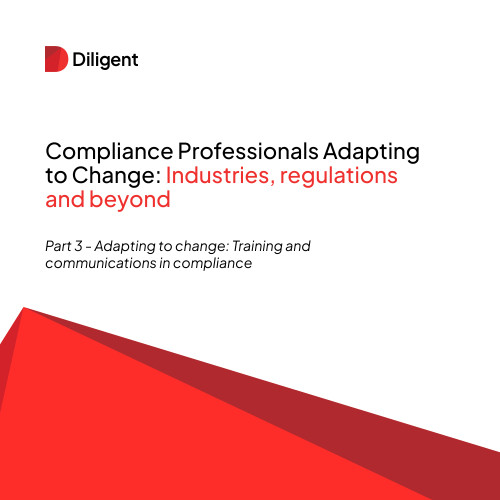Where does creativity fit into compliance?
In more places than you think. Problem-solving, accountability, communication, and connection—they all take creativity. Join Tom Fox and Ronnie Feldman on Creativity and Compliance, part of the award-winning Compliance Podcast Network.
Ronnie’s company, Learnings and Entertainment, utilizes the entertainment devices that people use to consume information in their everyday, non-work lives and applies them to important topics around compliance and ethics. It is not only about being funny. It is about changing the tone of your compliance communications and messaging to make your compliance program, policies, and resources more accessible. Today Ronnie and Tom rant about the fallacy of compliance training completion rates.
The importance of engagement over completion rates in compliance training programs is a topic that has been gaining traction in recent times. The traditional focus on completion rates is being challenged, with experts advocating for a shift towards more engaging and interactive training methods. Tom Fox, a seasoned compliance professional, argues that completion rates are not as important as many organizations perceive them to be. He believes that a singular focus on completion rates can lead to lackluster programs, and instead, engagement should be prioritized. Similarly, Ronnie Feldman, an expert in education and communication strategies, emphasizes that while completion rates have a role, they should not be the primary measure of success. Feldman advocates for a greater focus on engagement, arguing that without it, individuals are not truly learning or benefiting from the training.
Both Fox and Feldman’s perspectives are shaped by their extensive experience in the field, leading them to suggest that organizations should minimize the importance of completion rates and instead invest in initiatives that drive meaningful engagement.
Key Highlights:
- Engaging Training for Effective Compliance Education
- Interactive Training for Effective Compliance Programs
- Engaging Micro Learning for Compliance Programs
- Engaging Compliance Training with Fun Activities
Resources:
Ronnie
- Learnings & Entertainments (Website)
- Compliance Confessions – inspired by “Mean Tweets,” these 90-second commercials address misconceptions and excuses to promote the speak-up culture and the E&C team as positive and helpful.
- E&C Training Jams – a soulful singer who banters with ethics & compliance, explaining policies, sharing examples, and debunking excuses.
- Tales from the Hotline – Real speak up-themed stories about workplace behavior gone wrong.
- Workplace Tonight Show! – E&C meets SNL Weekend Update, explaining corporate risk topics and why employees should care.
- 60-Second Communication & Awareness Shorts – A variety of short, customizable, music and multimedia, quick-hitter “commercials” promoting integrity, compliance, speaking up, and the E&C team as helpful advisors and coaches.
- Custom Live & Digital Programing – Custom creative programming that balances the seriousness of the subject matter with a more engaging delivery. After all, you can’t bore people into learning.
Tom
For more information on the Ethico ROI Calculator and a free White Paper on the ROI of Compliance, click here.











